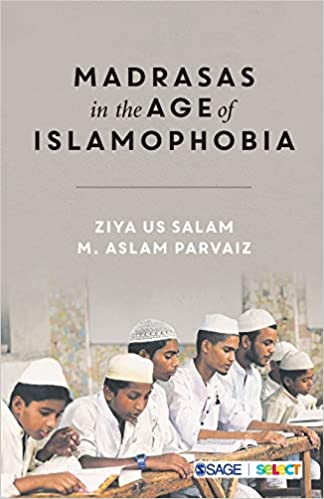Madrasas in the Age of Islamophobia by Zia Us Salam and M Aslam Parvaiz offers us an insight into the different facets of the world of madrasas in India. The preface spells out the central question/intent: what the reality of madrasas is today, a ubiquitous part of the landscape of all major townships across India, a term everyone seems to know of but little of this knowledge is based on any real interaction. The book highlights how the lack of any real engagement with these institutions (at the level of public policy, media and/or everyday life) and its stakeholders has bred false notions about these age-old educational institutions as dens of terror. The book seeks to dispel this myth, showing how nothing could be further than the truth; and details how in the Indian context, none of these allegations are based on evidence.
The book builds on this argument by taking the reader through the different aspects of madrasa education. In ‘Reminiscences of a Utopian Past’ the authors chart the evolution of madrasas from the semi-organized structure of group teaching and learning of Halqa or Majlis. It discusses the concept of ilm (knowledge) in Islam and how madrasas from their early days in India were regarded as knowledge centers educating students in both transmitted sciences and rational sciences and opening pathways for royal employment. In ‘Deoband Conundrum: The Madrasa that Stood Still in Time’, the authors discuss the legacy of the madrasas in South Asia which educated social reformers like Ram Mohan Roy, India’s first President Rajendra Prasad and Munshi Premchand. Focusing on the historical trajectory of Darul Uloom Deoband, one of the most prestigious Islamic universities in the subcontinent the book emphasizes on how the institution emerged from the anti-colonial struggle, and it was this anti-British genesis which led it to focus solely on traditional Islamic Learning and shunning of science. Later in the book the authors highlight the institutions’ key role in the freedom struggle wherein Deoband emerged as ‘body of nationalists’ who not only stood up against the British but also acted as a perfect foil to the Muslim League’s designs for a separate state of Pakistan.

